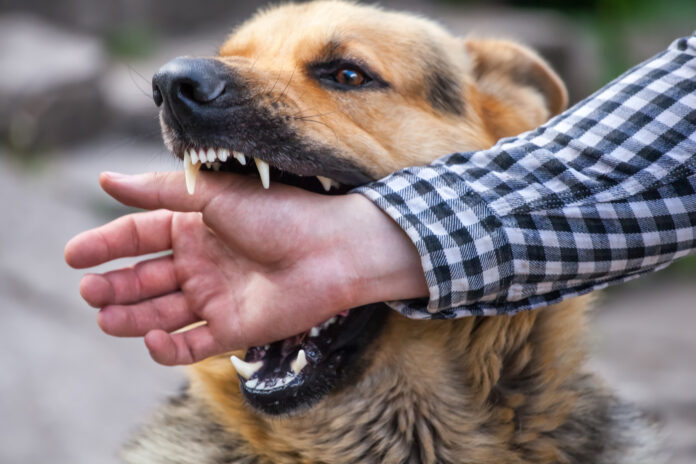Dog attacks can be life-altering events, leaving both physical and emotional scars. The sudden nature of these incidents often leaves victims feeling overwhelmed and unsure of what to do next.
Taking the right steps immediately after the attack is essential to protect your health, rights, and potential legal claims. From seeking medical care to handling the legal complexities, knowing how to respond can impact your recovery.
To ensure you take the proper actions after a dog attack, read on for key steps to help you recover and move forward.
Seek Immediate Medical Attention
The first thing you should do after a dog attack is to seek immediate medical attention. Even if the bite seems minor, dog bites can lead to infections and complications, especially if the dog is not up-to-date on its vaccinations.
Below are the reasons why getting medical attention is essential:
- Preventing infections: Dog bite wounds can introduce bacteria into your body, leading to serious infections. Puncture wounds are particularly prone to infection.
- Assessing the severity of the injury: A medical professional will determine whether you need stitches or other treatments.
- Evaluating rabies risk: Rabies is a rare but fatal virus transmitted through animal bites. If the dog’s vaccination history is unknown, a healthcare provider may recommend post-exposure rabies shots.
- Documenting the injury: Having an official medical record can be helpful if you later decide to pursue legal action.
Seeking medical care promptly will not only ensure your health but also strengthen any legal steps you might need to take. This can be especially important when facing dog bite injury lawsuits in Utah or other locations where legal consequences can vary depending on the jurisdiction.
Report the Incident to Local Authorities
After receiving medical attention, it’s important to report the dog bite incident to the proper authorities. This helps protect others and can provide necessary documentation for future legal action. Depending on where you live, this could involve contacting animal control or the police.
Below are the reasons why reporting the incident is crucial:
- Ensuring the dog’s behavior is monitored: Local animal control may need to investigate if the dog has aggressive tendencies or if it’s a repeat offender.
- Preventing future attacks: Reporting can trigger an evaluation of the dog’s behavior to determine if it’s a dangerous dog.
- Establishing a record of the incident: Filing a report provides legal documentation that may support a dog bite case if legal action becomes necessary.
Once the dog attack has been reported, local authorities will typically take steps to ensure community safety. This may include quarantining the dog or investigating the circumstances of the dog bite case further.
Collect Key Information at the Scene
After the attack, gathering information is essential, especially if you’re considering legal action or filing an insurance claim.
Below is the information you should collect:
- Dog owner’s contact information: Obtain the dog owner’s name, address, and phone number. This is critical if you decide to seek compensation for your dog bite injuries.
- Vaccination records: Ask the dog owner for details about the dog’s vaccination status, particularly rabies shots.
- Witness statements: If anyone witnessed the attack, get their contact information. Their statements could be vital in supporting your case.
- Photos of injuries and the scene: Take pictures of your bite wounds and any other relevant details of the location where the attack occurred.
Being prepared with this information helps if you’re later involved in a legal process. It will provide essential evidence in dog bite cases, allowing you to receive fair compensation for your medical bills, pain, and suffering.
Understand Your Legal Rights
Understanding your legal rights following a dog bite is crucial. In many cases, the dog owner is responsible for the attack, especially if the dog has shown previous signs of aggression or was off leash in a public place.
Below are steps to take when dealing with legal concerns:
- Consult a dog bite attorney: A dog bite attorney can guide you through the legal process and help you seek damages for medical expenses and emotional distress. This highlights the importance of an injury lawyer in ensuring that your rights are protected.
- Document medical treatment and costs: Keep detailed records of your medical treatment, including bills, prescriptions, and any follow-up care you receive.
- File a claim with the insurance company: Many dog owners have homeowners’ or renters’ insurance that may cover dog bite injuries. Filing a claim could help you recover the costs of your medical care and other losses.
Taking these steps can help you protect your rights and ensure you receive the compensation you deserve. Legal proceedings can be complex, but with the help of a dog bite lawyer, you can approach the process more confidently.
Final Thoughts
In the aftermath of a dog attack, prioritizing your health and understanding your rights is essential. The steps you take after the incident can impact your physical and emotional well-being, as well as any potential legal claims. Stay informed and proactive, and don’t hesitate to seek professional guidance to help you navigate this challenging time.














